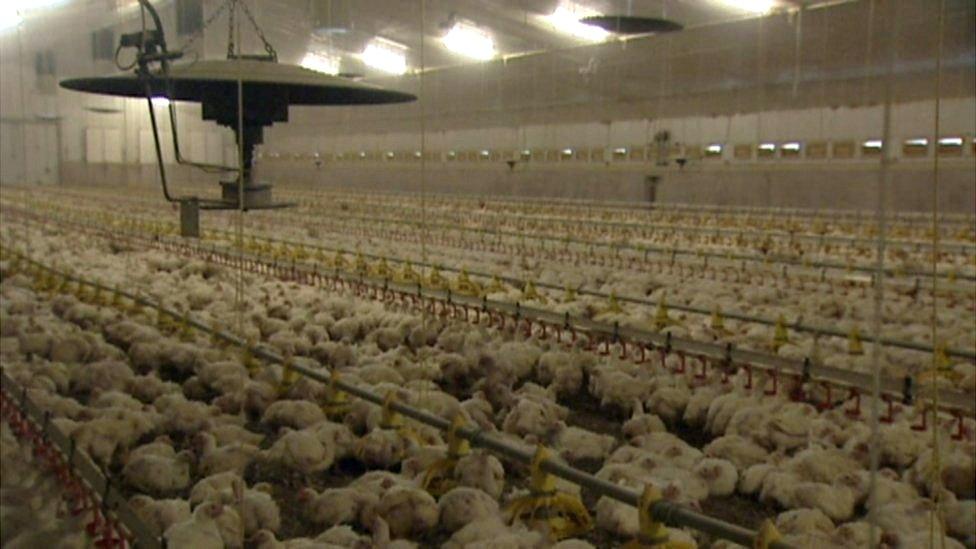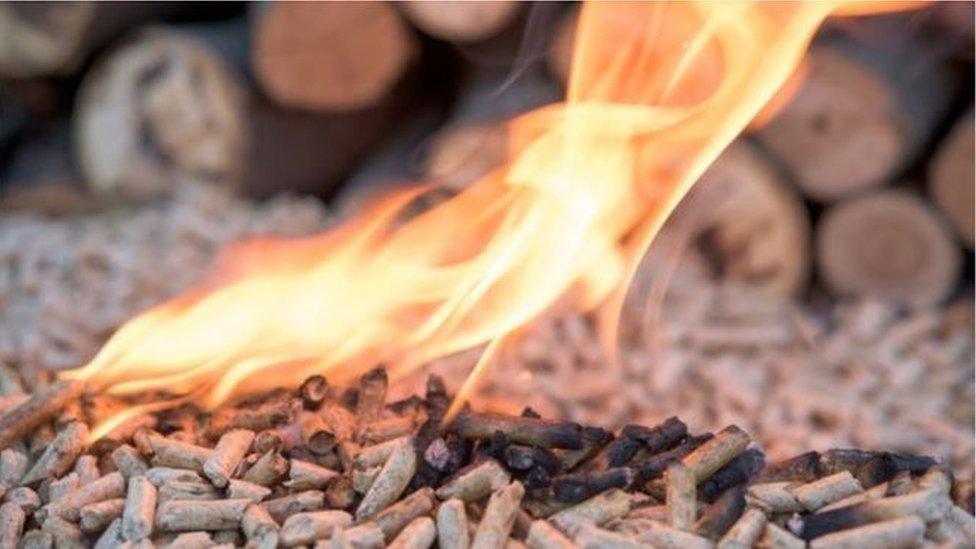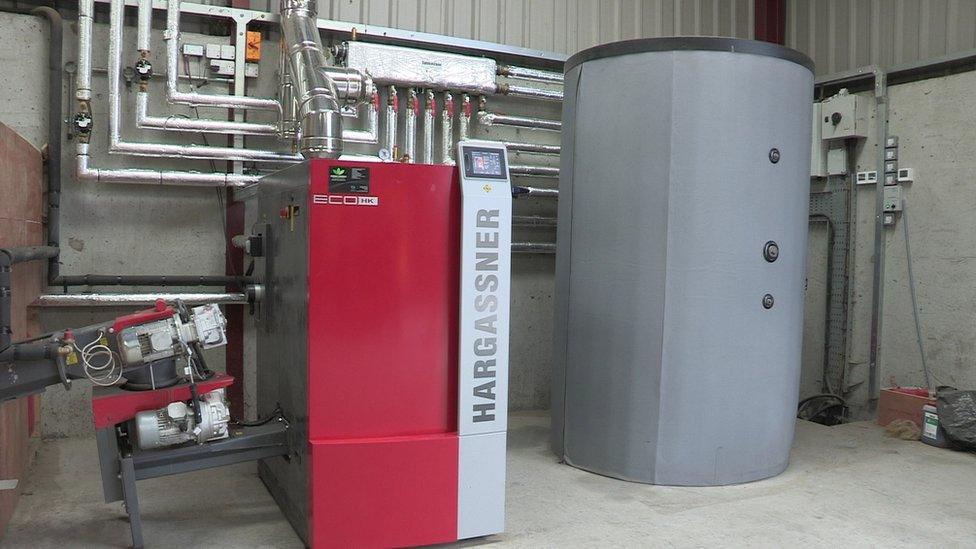Poultry "clean bill of health" in RHI audit
- Published

Many poultry firms have put in RHI boilers
The poultry industry got a "clean bill of health" from a government audit designed to uncover fraud in the RHI scheme, a court has been told.
And no problems were found in mushroom businesses either following targeted inspections by a firm of consultants ordered by the Department for the Economy.
Accountants from PWC inspected 300 sites which were generating most heat after allegations of abuse in the renewable heat scheme.
On Wednesday a court was told that their report, which has not been published, had criticised some subsidy recipients, but had found no "cause for concern" in either of the two industries.

The Renewable Heat Incentive (RHI) scheme was an attempt by the Northern Ireland Executive to help to increase consumption of heat from renewable sources
The revelation came as a group representing hundreds of boiler owners, many of them poultry businesses, challenged the department's right to substantially cut their subsidies.
A lawyer for the Renewable Heat Association for Northern Ireland told the Commercial Court that officials did not have that power.
He argued that there was nothing in the regulations or the European approval they'd been given to let the department retrospectively change tariffs for those who'd signed up to the original scheme.

A wood chip boiler accredited to the RHI scheme
New rules were approved by the Northern Ireland Assembly for the financial year 2017/8 just before its collapse earlier this year.
They moved all participants onto a capped scheme with tiered payments.
That greatly reduced payouts for firms which had been getting more generous payouts under the original uncapped scheme.
Before the changes the projected overspend for the 20-year term of the scheme was £490m, which would have had to come out of the Northern Ireland budget.

Sir Patrick Coghlin will hear the RHI inquiry
But a lawyer for the department said that the 2017 regulations when "read contextually against the potential catastrophe for public funds" were not unfair.
The case was adjourned until June when a full judicial review of the matter will be heard.
One possibility discussed in court was that judgement might not be issued until a planned public inquiry has reported.
It's due to begin taking witness evidence in the autumn.